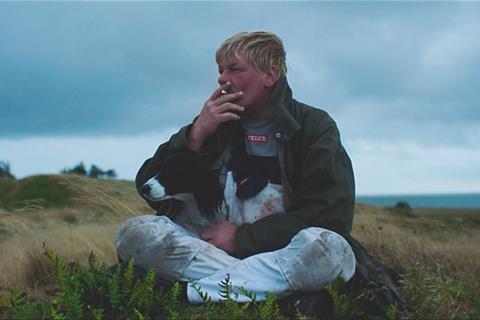Residents on the tiny Danish island of Mando confront the realities of climate change in this immersive documentary

Dir: Juan Palacios. Denmark. 2023. 89mins
The tiny, eight-kilometre-square island of Mando lies in the Wadden Sea, just off the southwest coast of Jutland, Denmark, accessible through a causeway which is cut off at high tide. While its 27 remaining (and mostly-aging) inhabitants have largely adapted to life adrift, climate change and rising water levels pose an increasing challenge. Spanish-born, Copenhagen-based director Juan Palacios and his Danish co-director Sofie Husum Johannesen follow these hardy islanders as they attempt to confront unpredictable dangers, adopting an observational approach underpinned by sympathetic creative choices and sterling editing work.
Thrusts the viewer directly into this isolated community
It is a world away from Palacios’ previous film Inland (2019), which detailed life in the dry heartland of Spain and won an honourable mention at CPH: Dox, but has more in common with his debut Pedalo, which followed three friends sailing around the Basque coast. Thanks to its engaging subjects and universal message As The Tide Comes In could well find an appreciative audience in its native Denmark and beyond following its IDFA premiere.
Co-director Husum Johannesen is a visual anthropologist and spent time with the island’s inhabitants, listening to stories and earning their trust, before any cameras arrived; this results in a palpable intimacy between filmmakers and subjects. Screen time is given to many of the islanders, including oldest resident Mie and her friends Ellen and Ingeborg, who discuss their “full moon sickness”, and the (far-fewer) men who denounce the government’s lack of action against the rising waters. The film’s main focus, however, is Gregers, whose family have been on the island for eight generations. Mando’s youngest inhabitant (he looks to be in his 40s), Gregers farms the land, visits his elderly parents and fruitlessly looks for love; first by applying to appear on a reality show for farmers seeking partners and then signing up for online dating.
Gregers is, like his neighbours, a filmmake’rs dream, an engaging and forthright character, hardy and taciturn but unafraid to reveal himself on camera. Understanding, however, that documentaries do not make themselves, and given Mando’s geographical and anthropological limitations, Palacios and Husum Johannesen have arranged what they describe as “carefully planned spontaneity”. They spend time developing the film’s narrative around the most compelling of the islanders’ stories, then set up interactions and allow them to naturally evolve. While this choreography is often evident on screen, the characters are so ease with the camera and each other that there is no sense of contrivance or artifice. There are also many moments of genuine humour, particularly between Gregers and his non-nonsense mother.
This approach also helps to thrust the viewer directly into this isolated community. There is no on-screen contextual information or direct-to-camera talking heads; instead, information about the island, its history and people, comes from conversations, newspaper articles, the old 1990s news programme Gregers has kept on VHS. Then a teen, he tells the “snobby” reporter from Copenhagen that he wants to leave the island and become a pilot; the fact that he remains, out of a sense of duty to his parents, is one of the film’s more poignant observations about the trappings of generational expectation. With no new blood, Gregers may very well soon be the last man standing.
Craft, too, is immersive. Acting as cinematographer, Palacios favours low, wide shots which capture the desolate beauty of the landscape and the movements of the tides, and emphasise just how small this island is against the elements. Morten Svenstrup’s minimal score is foreboding and otherworldly, but plays second fiddle to Peter Albrechtsen’s evocative sound design, in which birdsong, wind and, of course, water, are layered and intensified. Editing by Nicolas Norgaard Staffolani stitches together a fascinating portrait of life on this remote outcrop, the passing of days marked by Mie’s birthdays (99, then 100), the different groups of tourists and the changing seasons. Impressively, the film walks that delicate line of both celebrating Mando as an entirely unique place, an island lost in time, and holding it up as a King Canute-esque symbol for humanity’s ongoing fight to hold back the tide.
Production companies: Elk Film
International sales: Elk Film, contact@elkfilm.dk
Producer: Kasper Lykke Schultz
Co-director: Sofie Husum Johannesen.
Cinematography: Juan Palacios
Editing: Nicolas Norgaard Staffolani
Music: Morten Svenstrup

























No comments yet